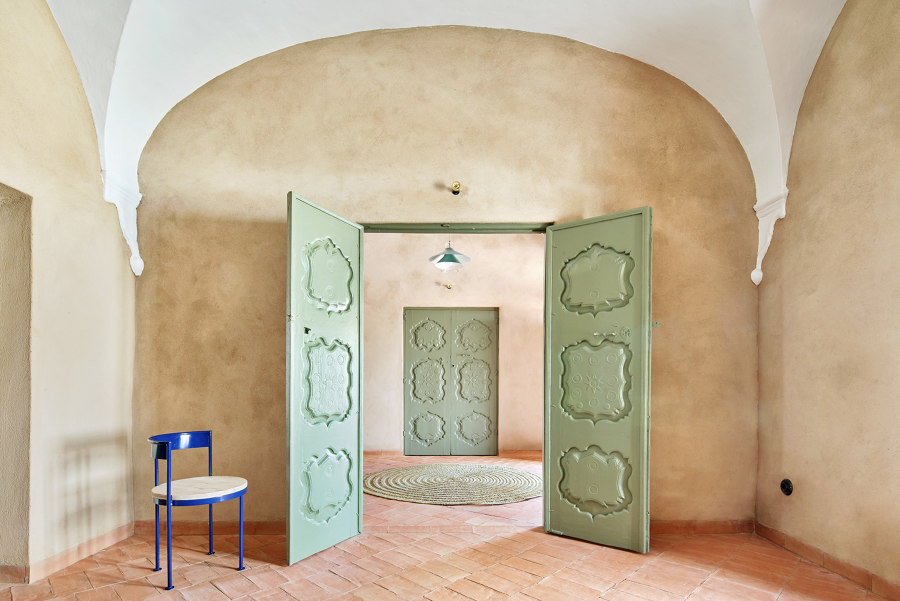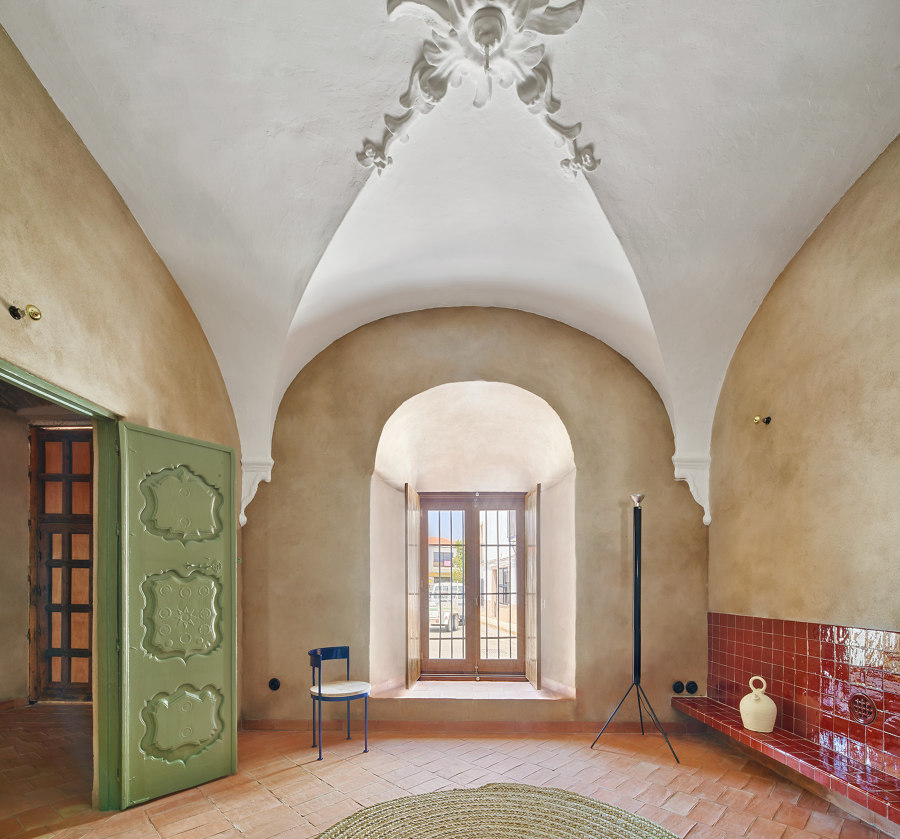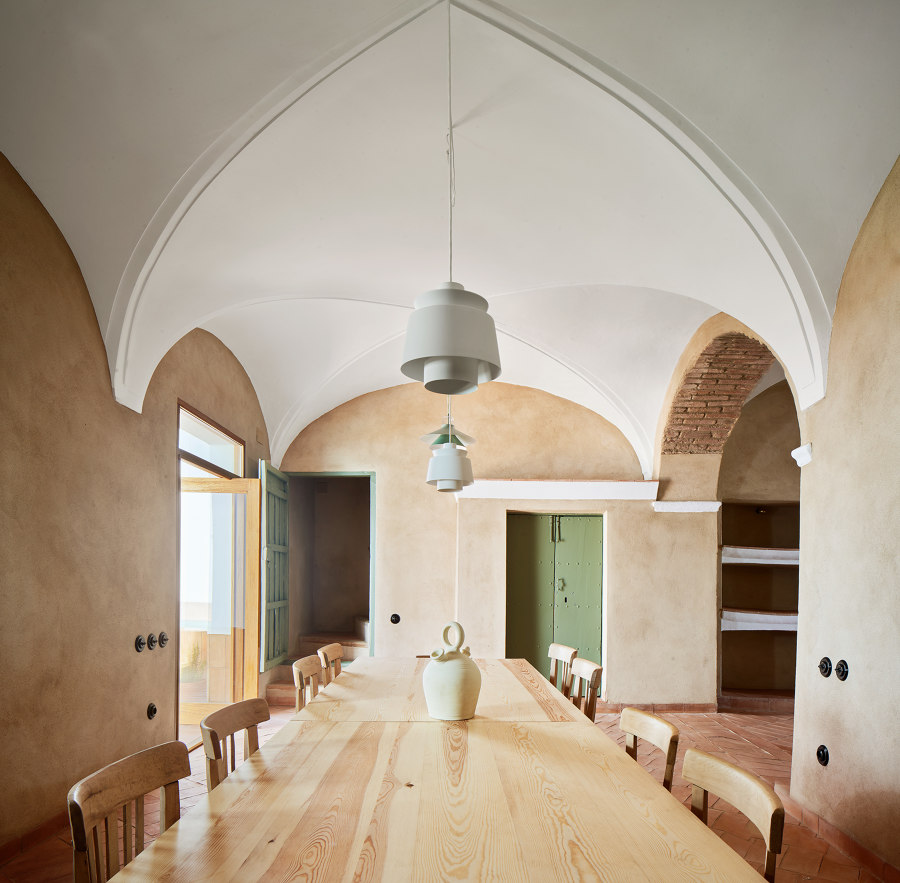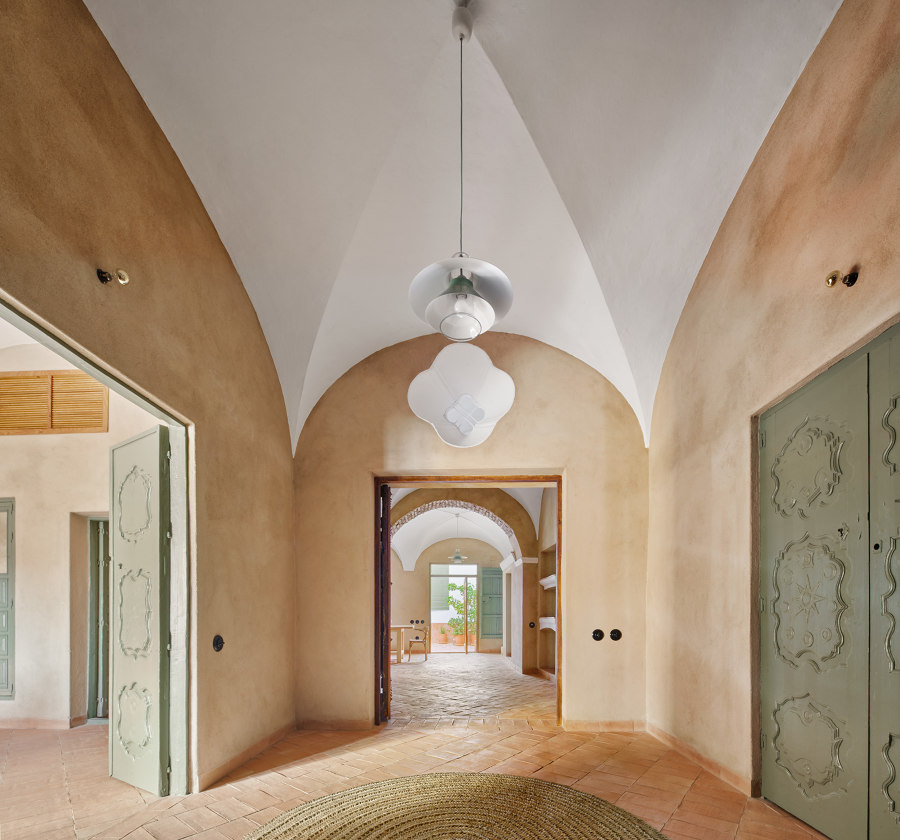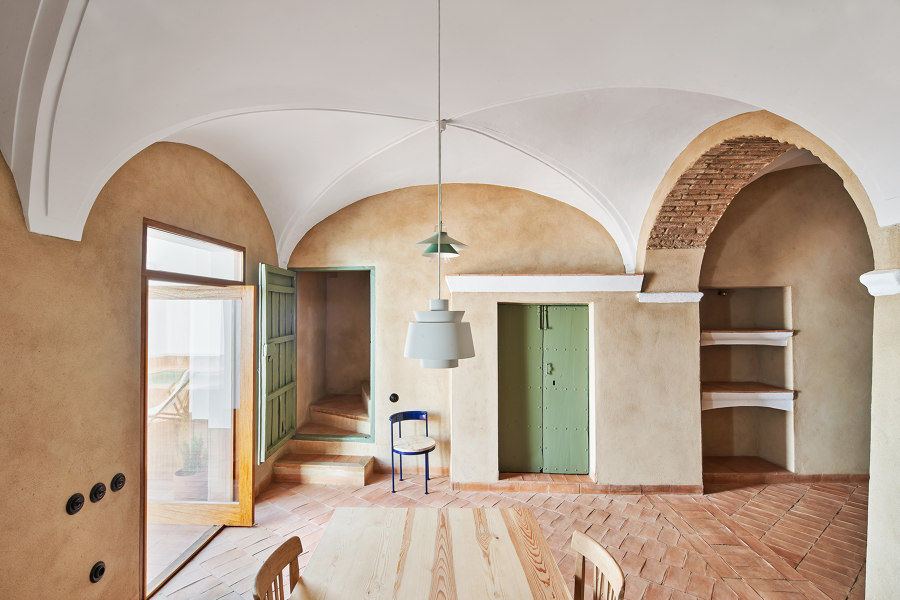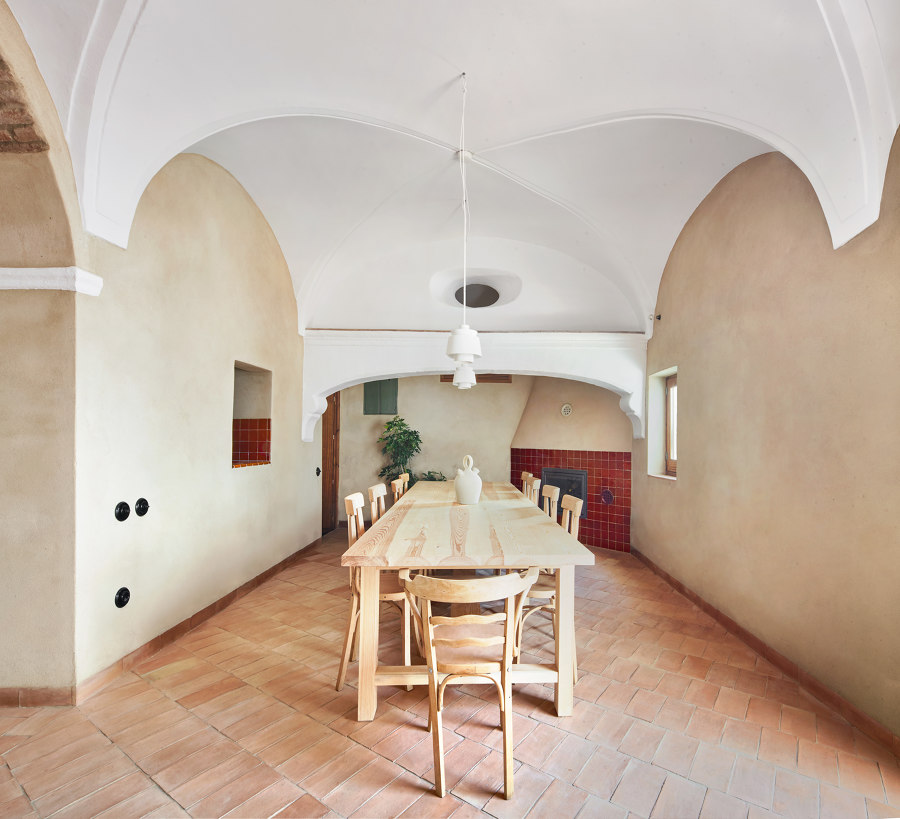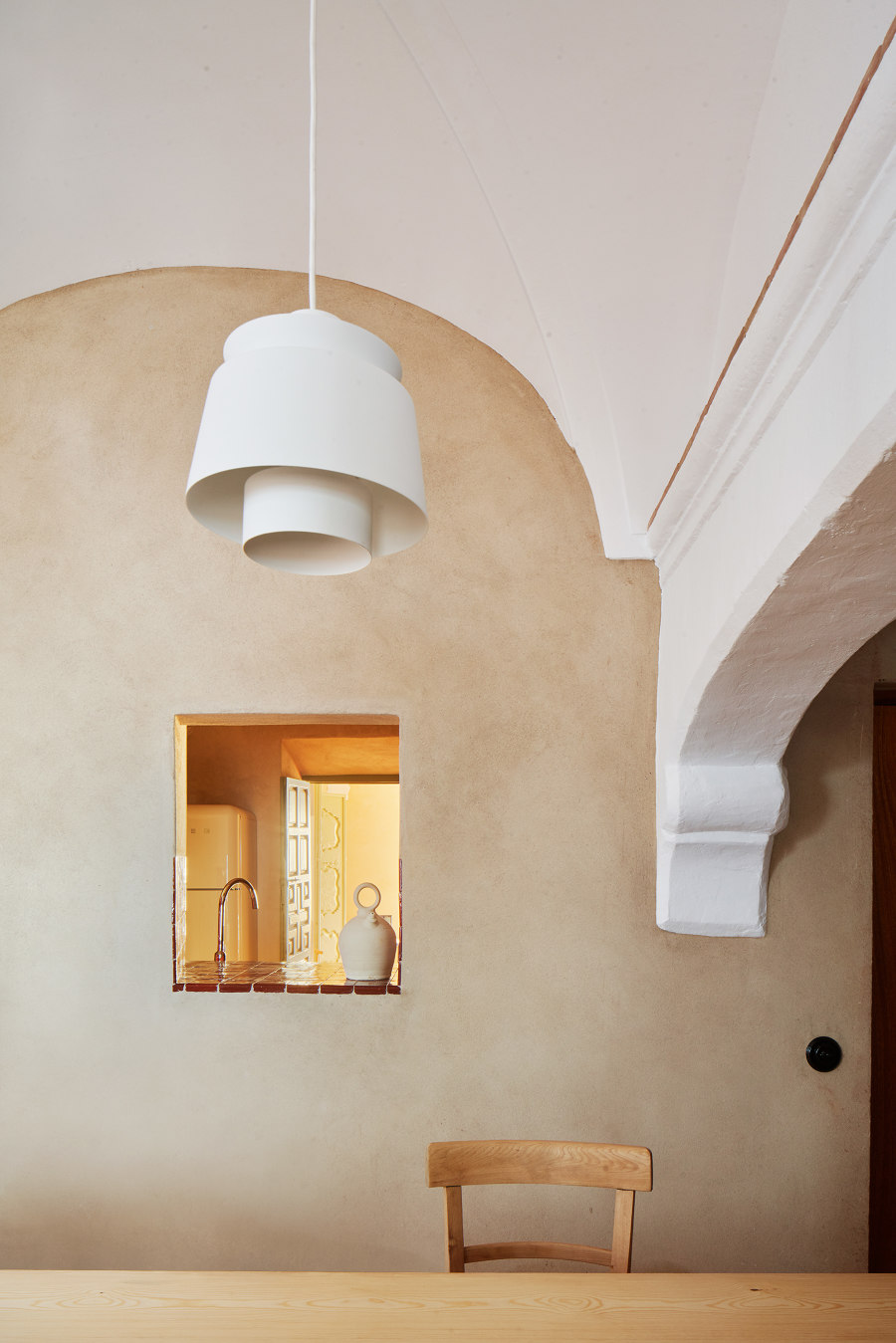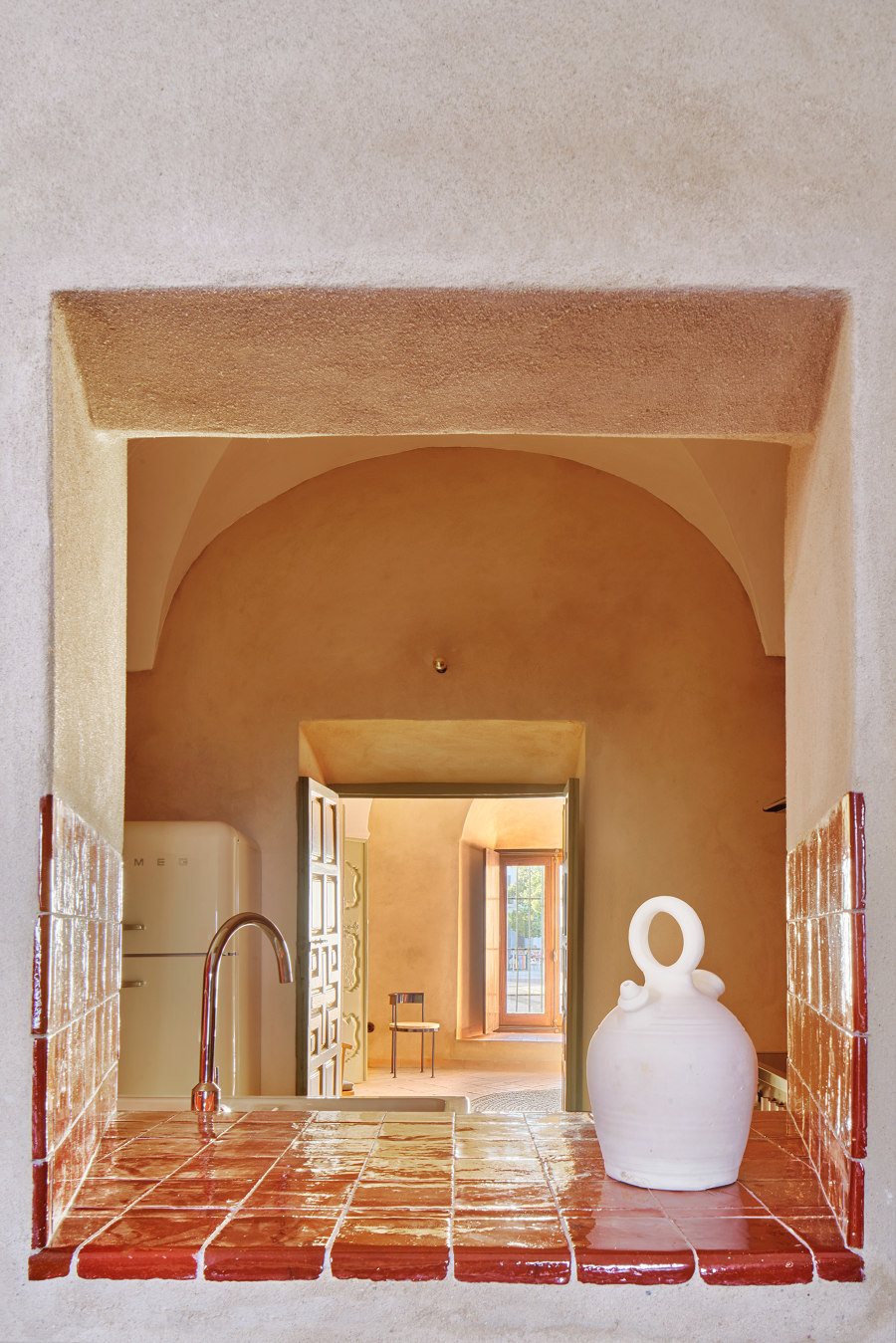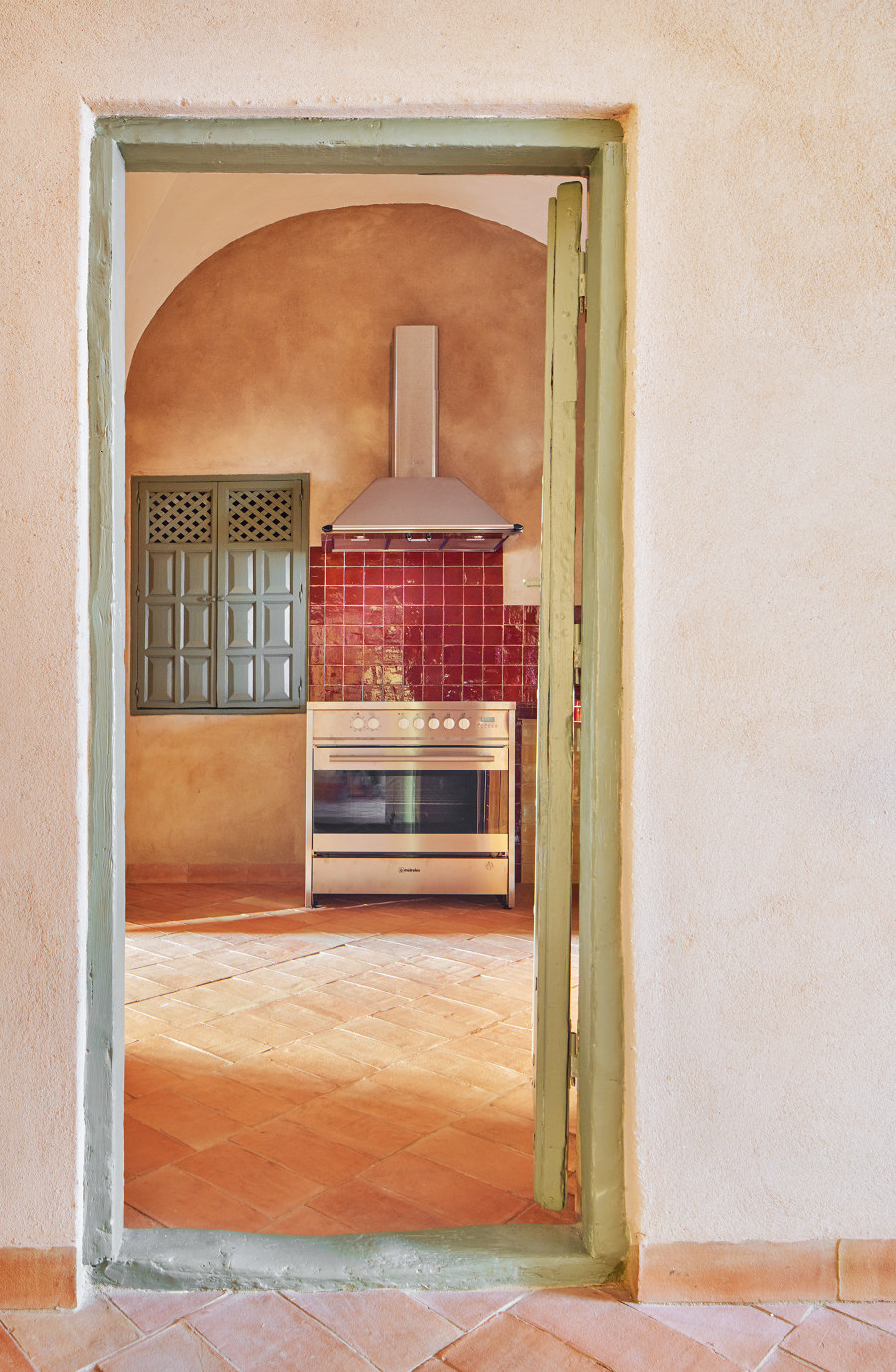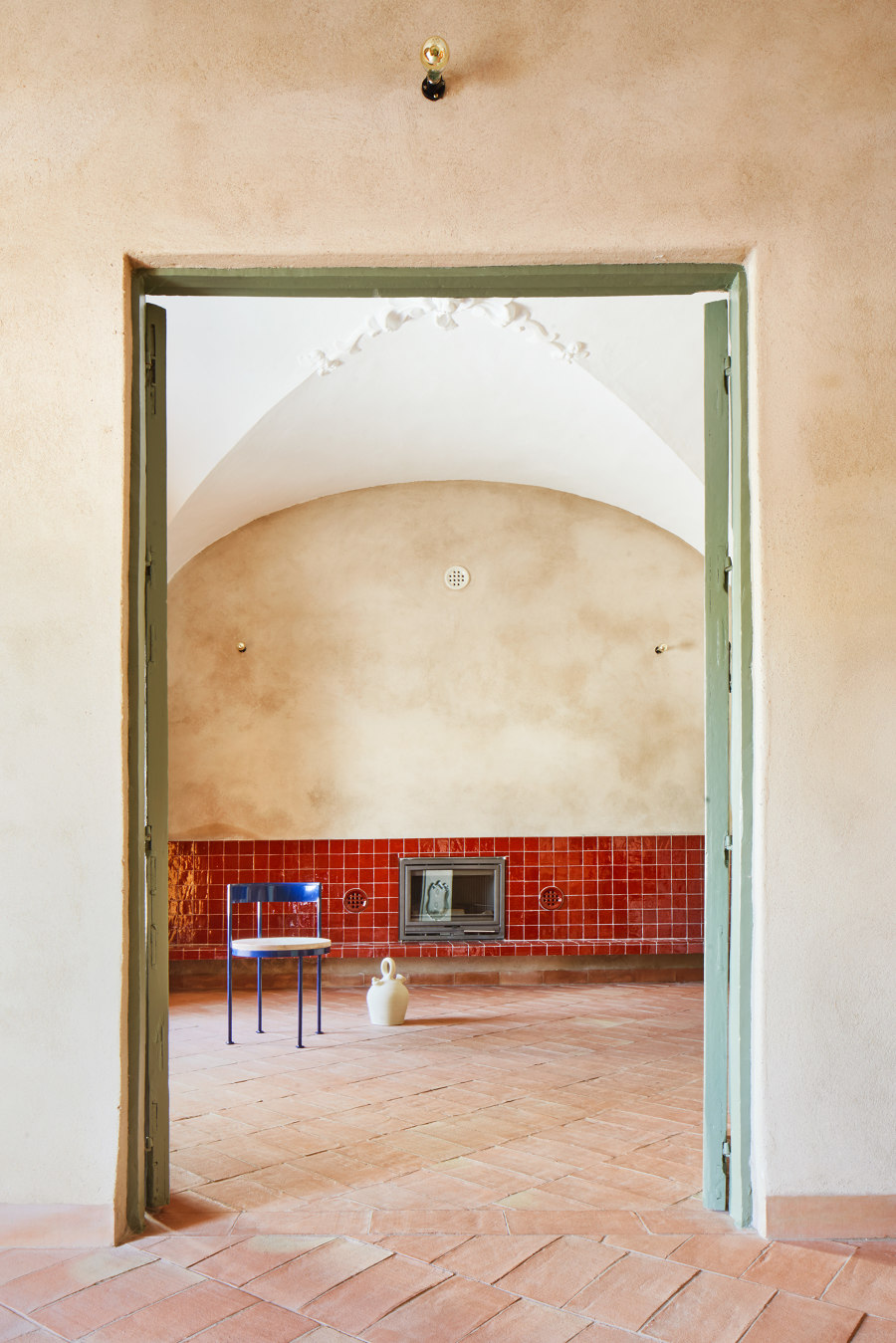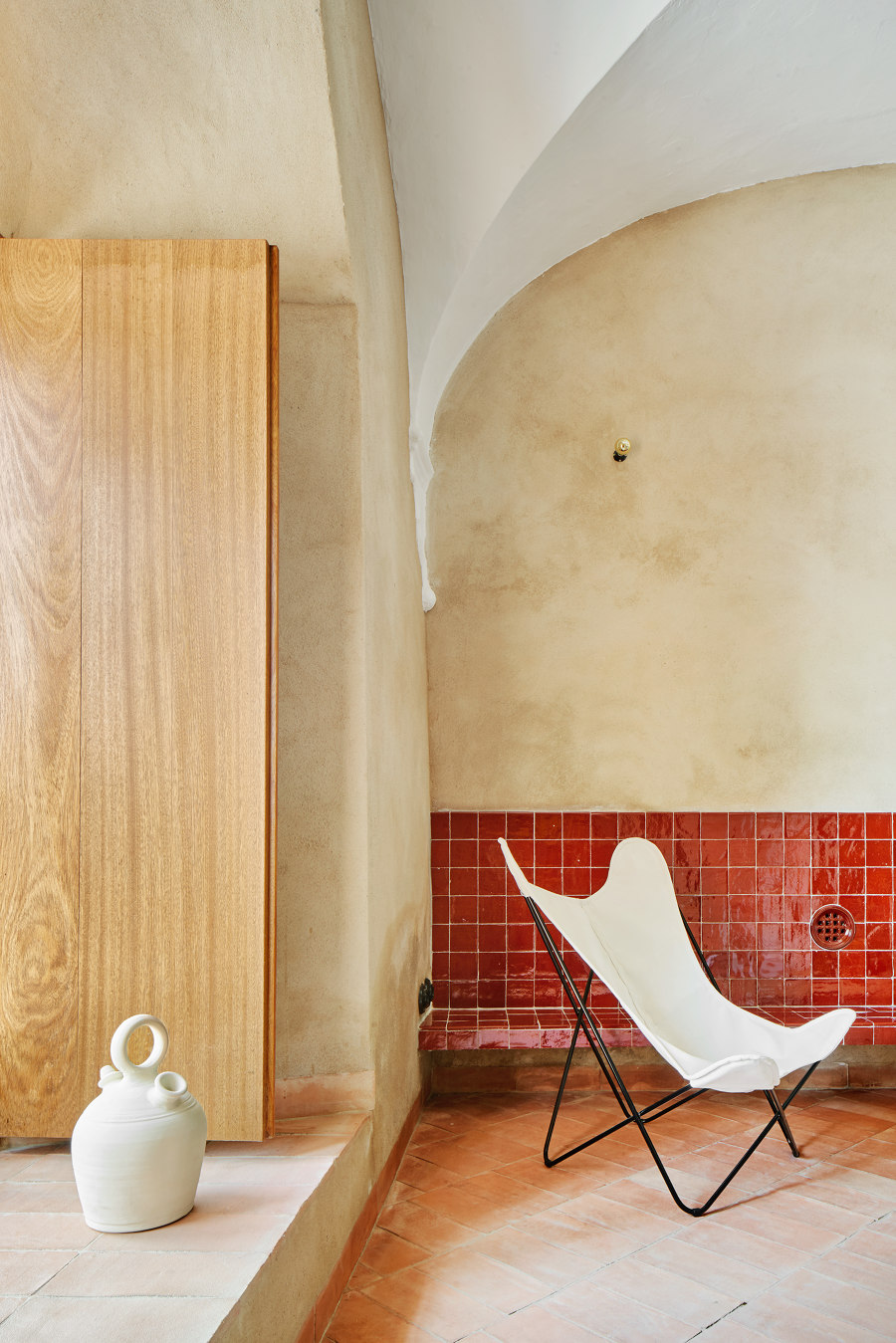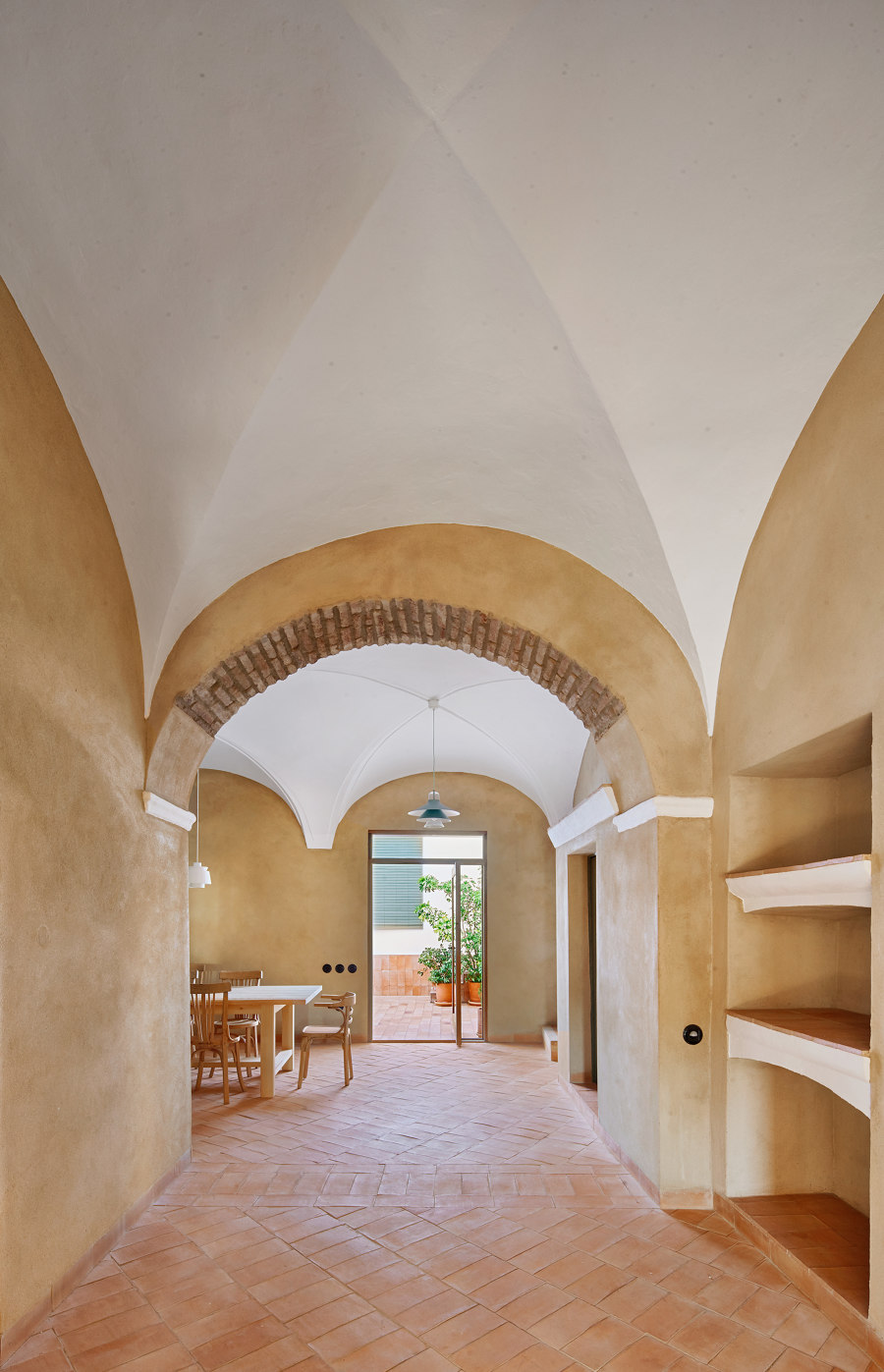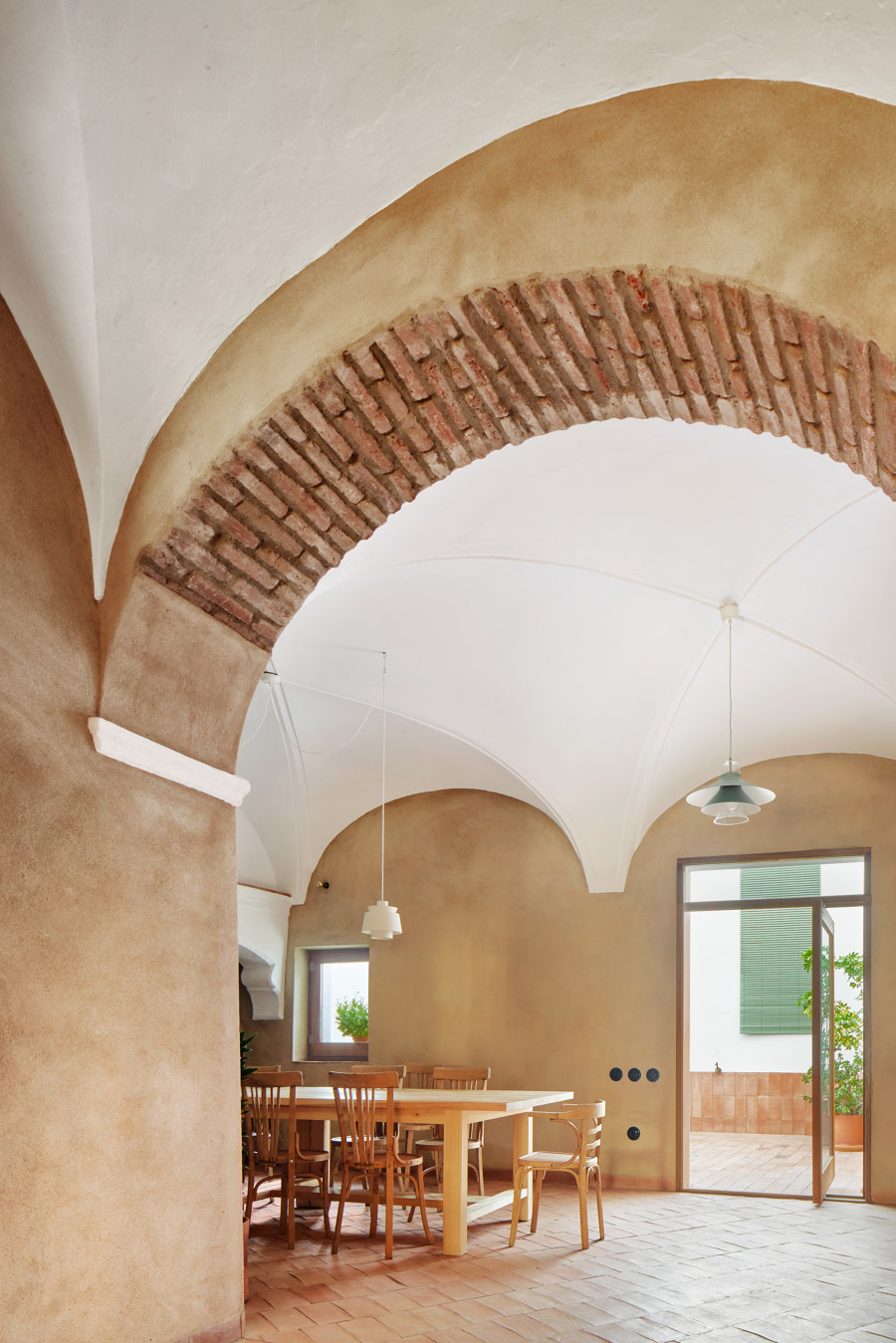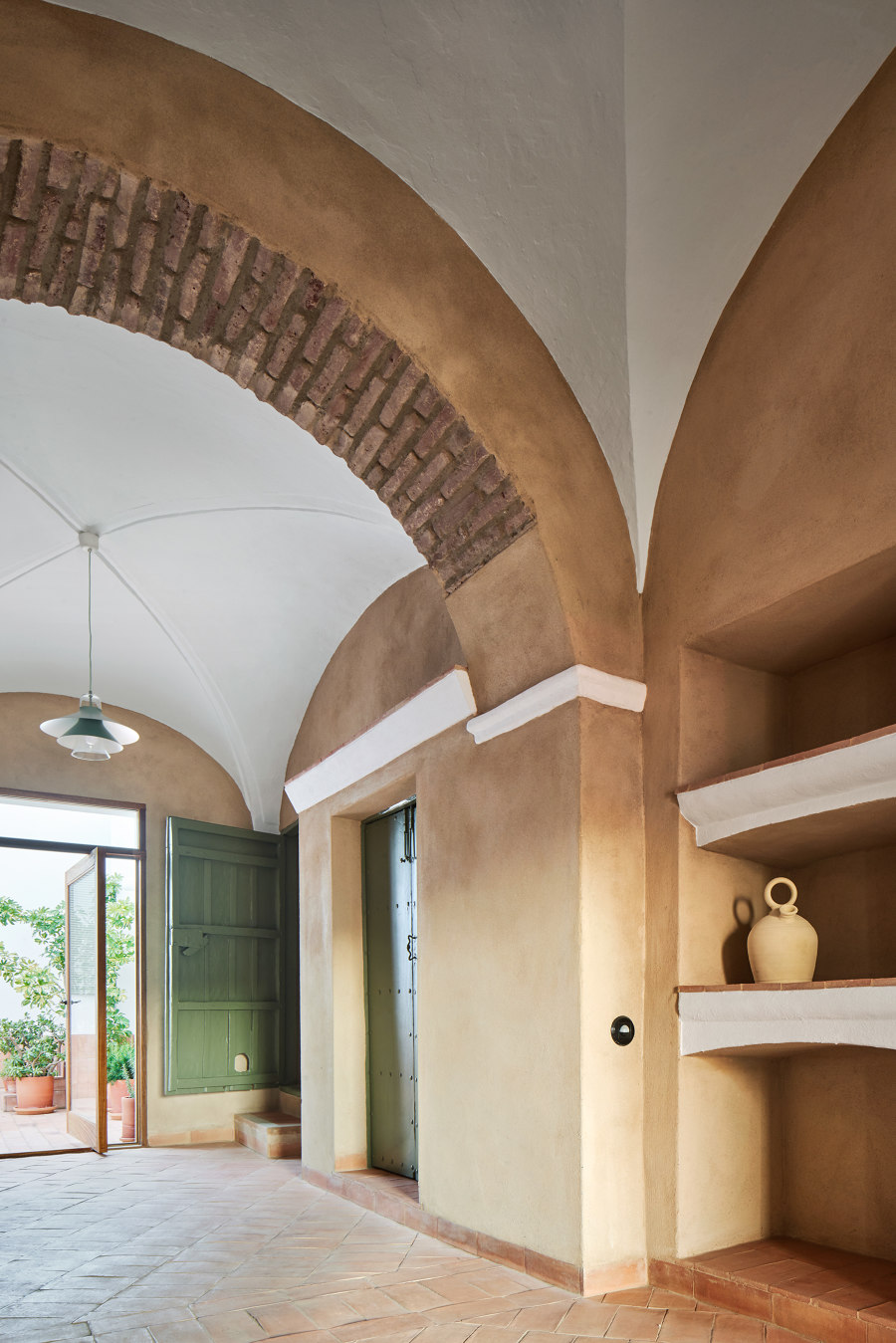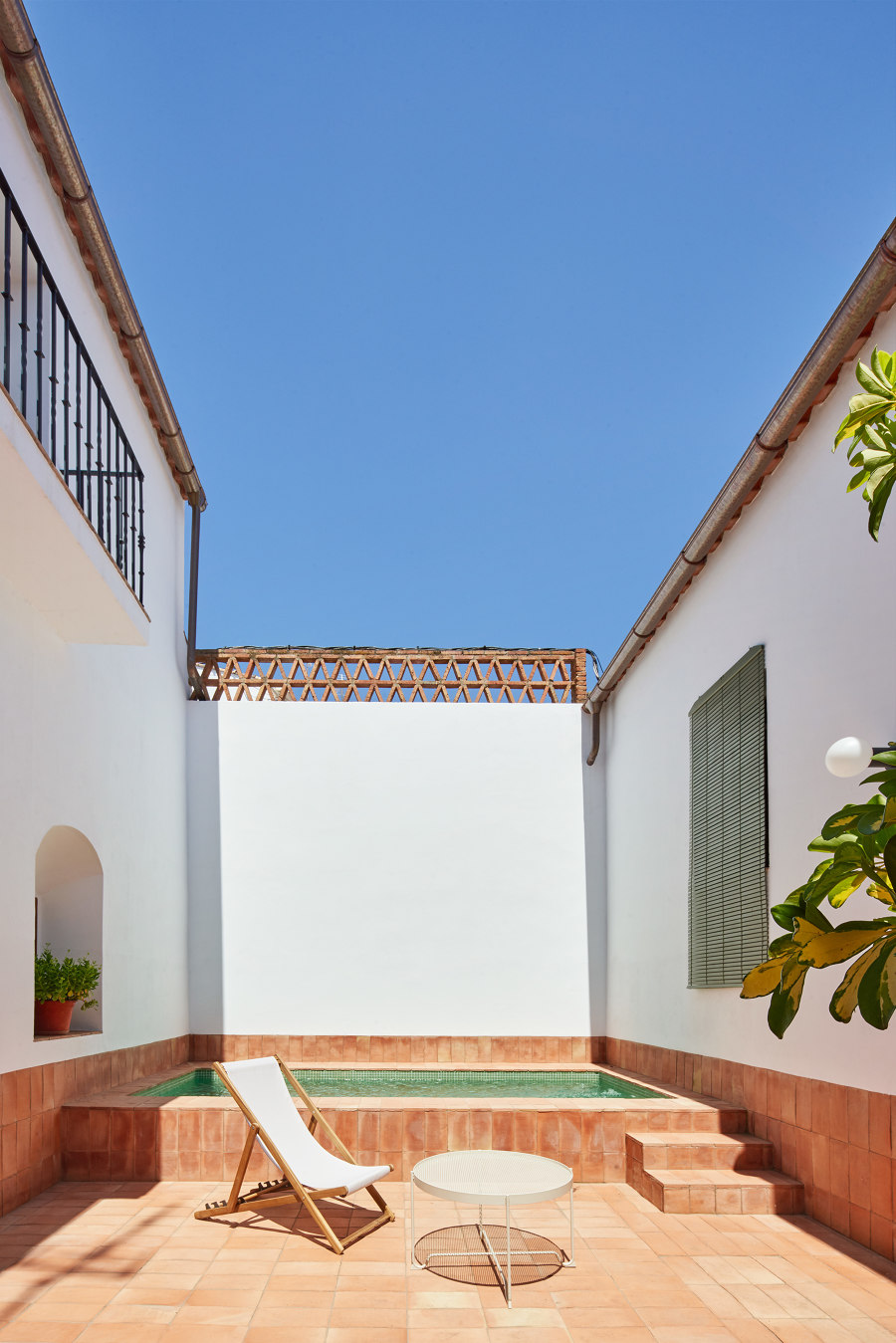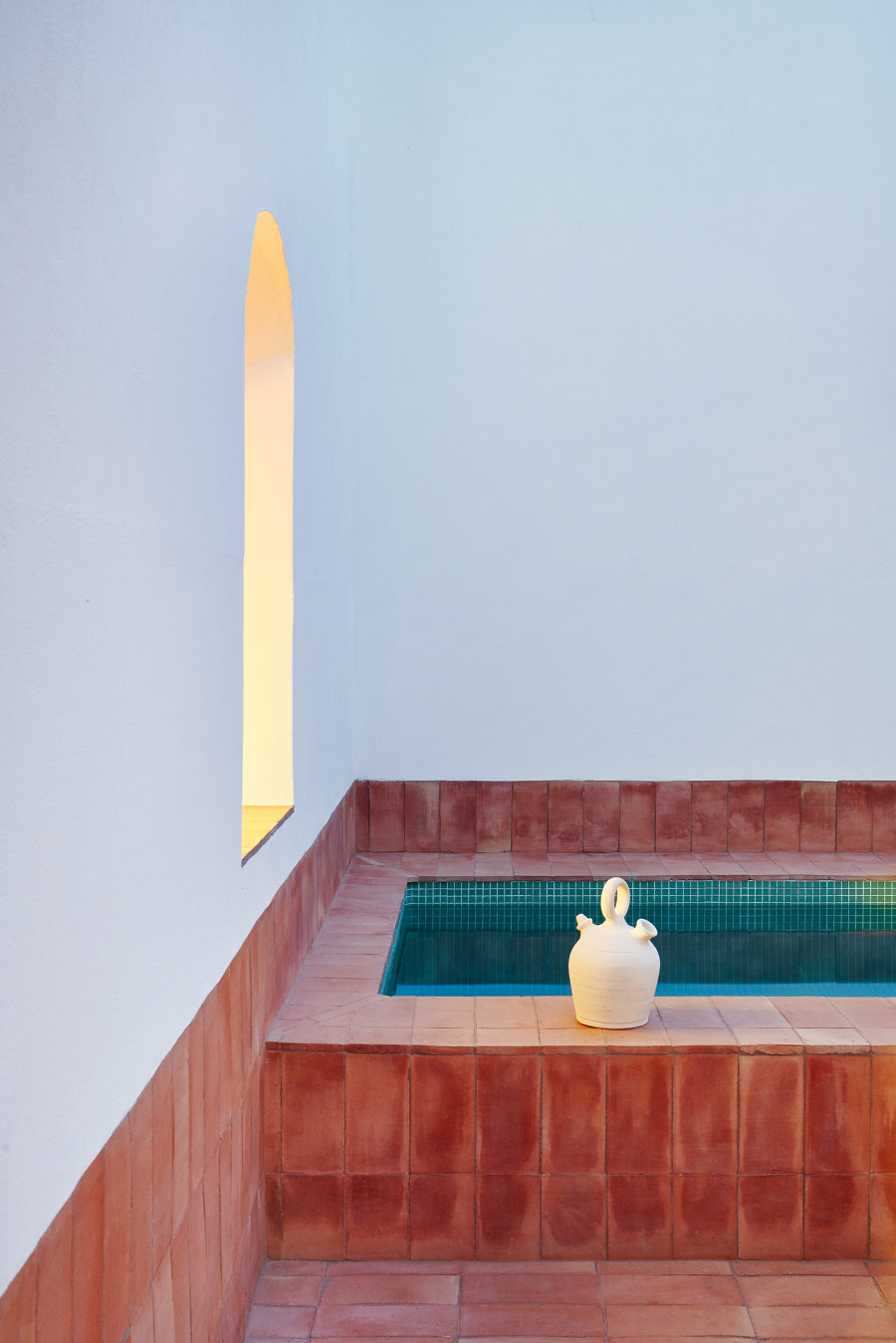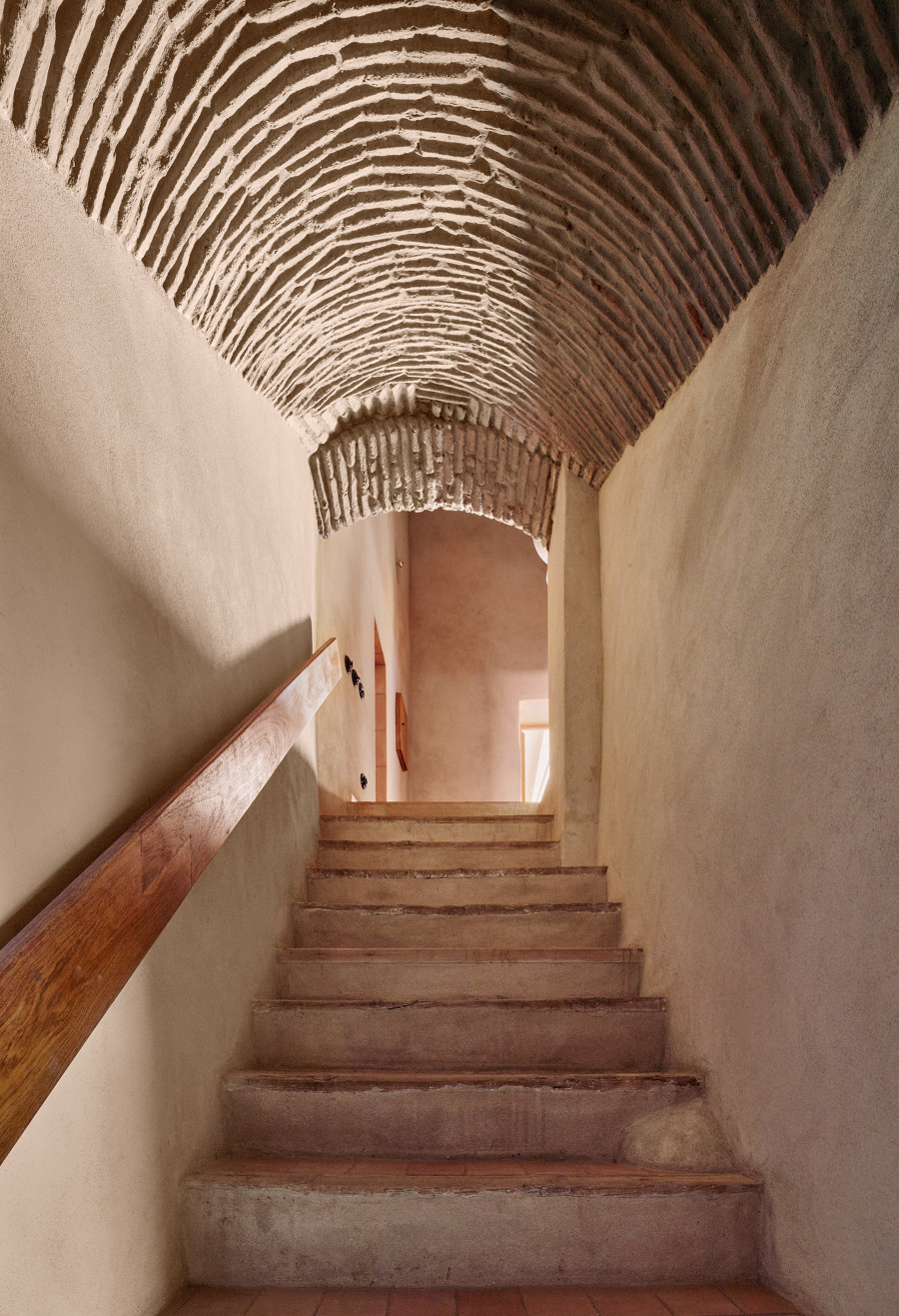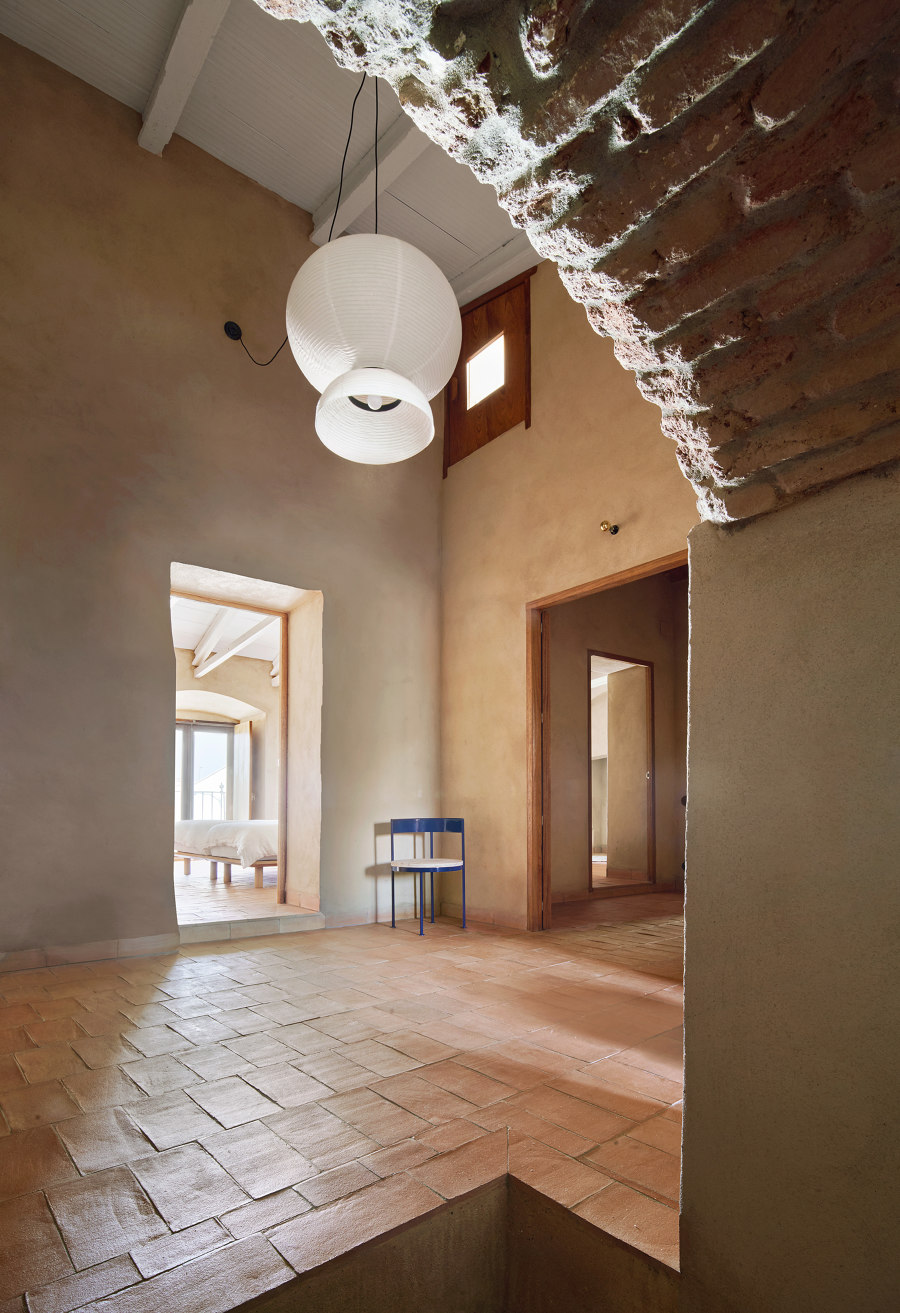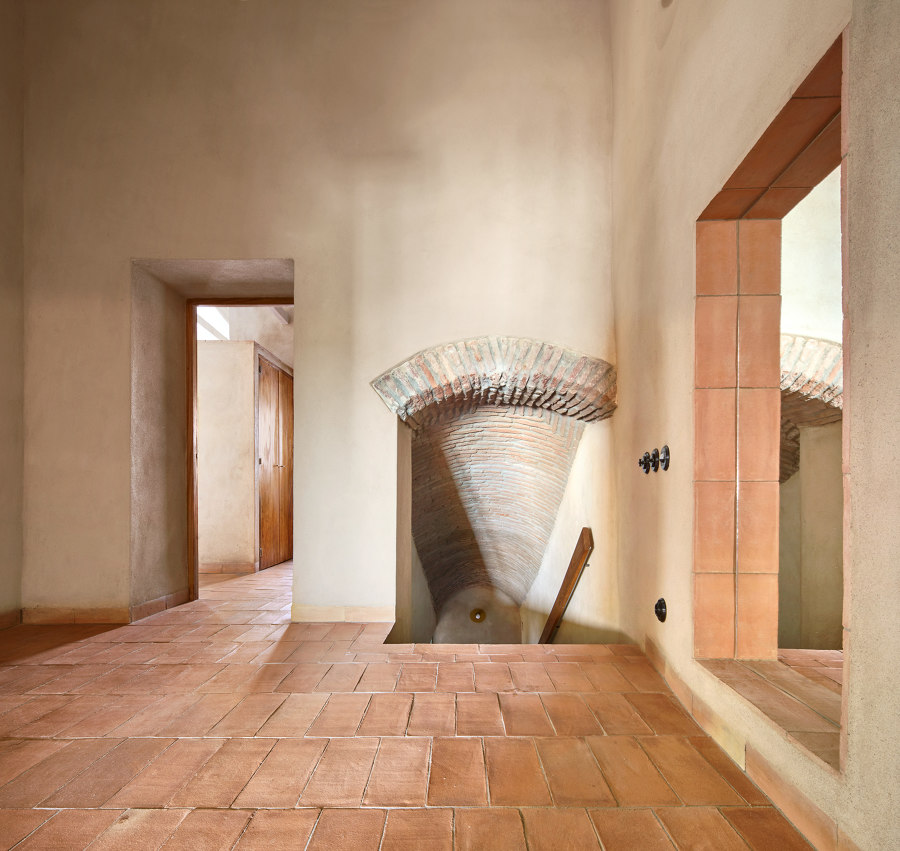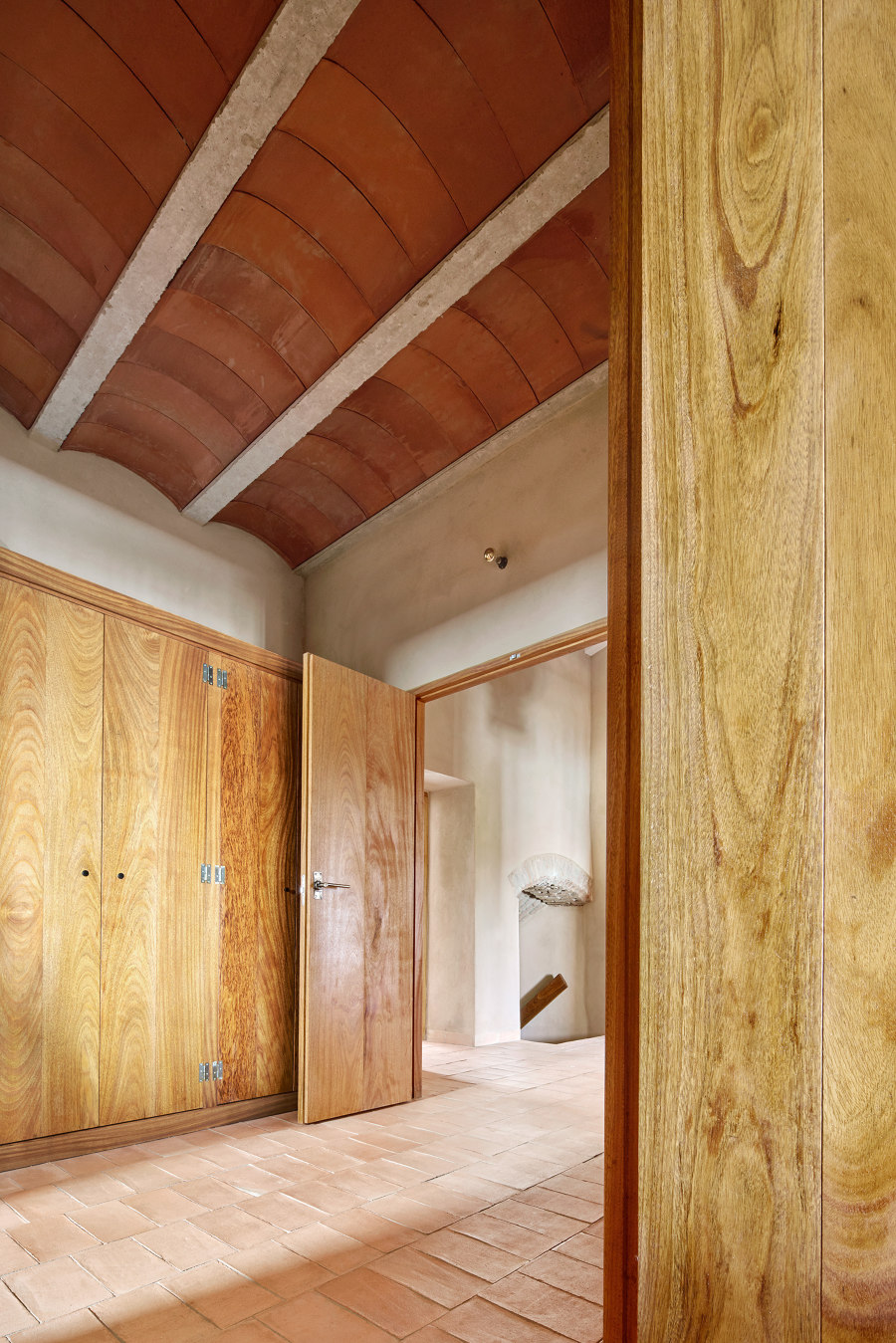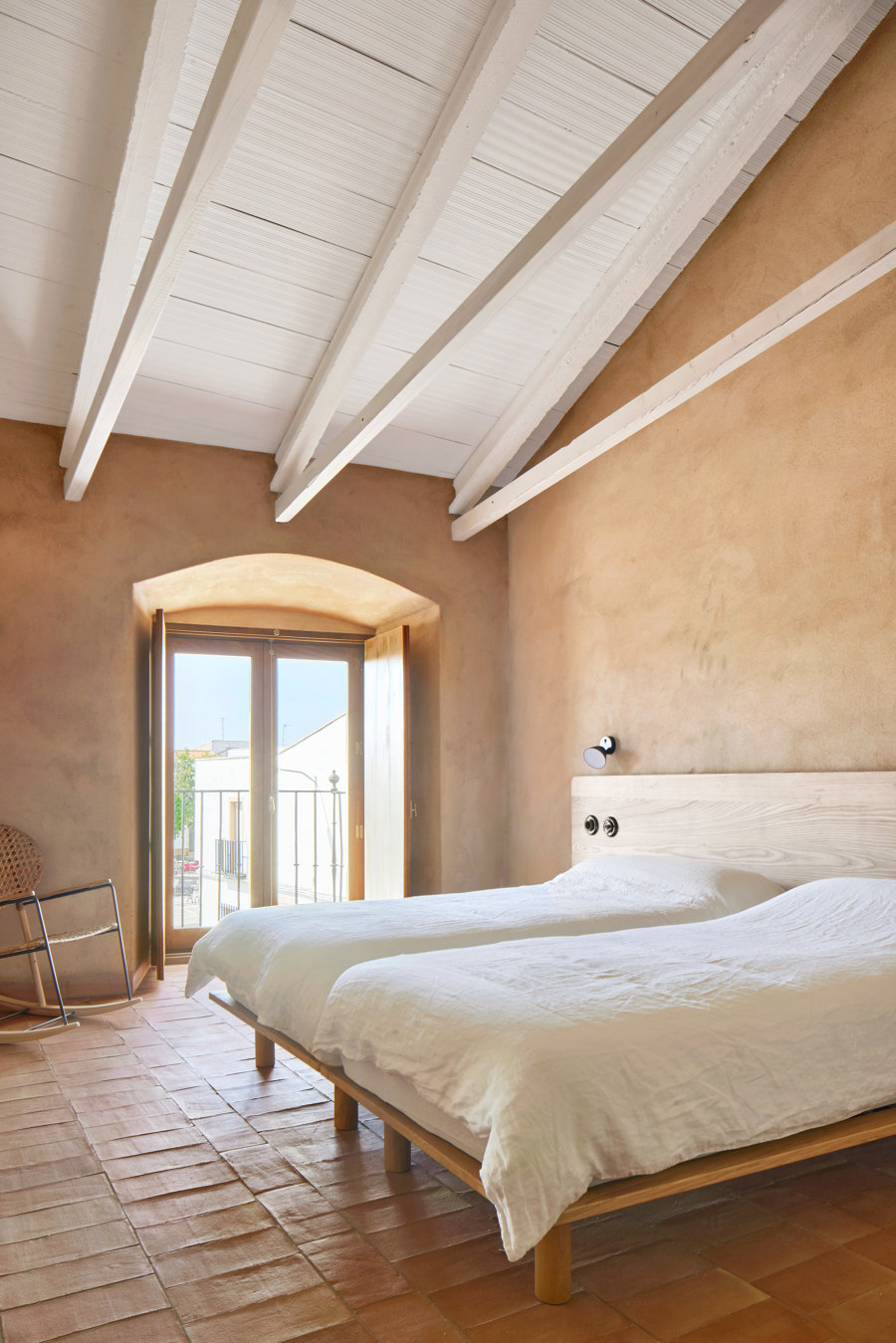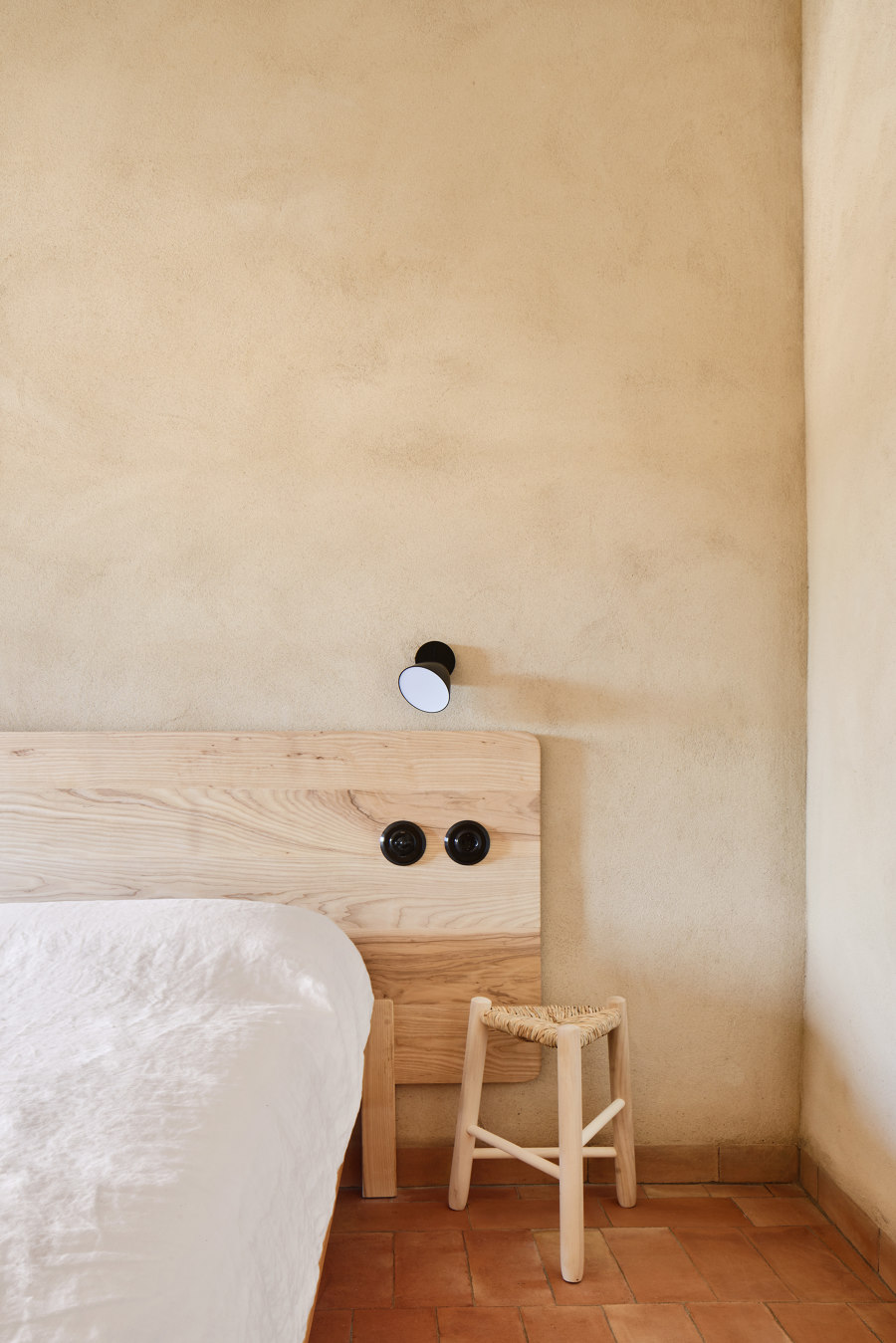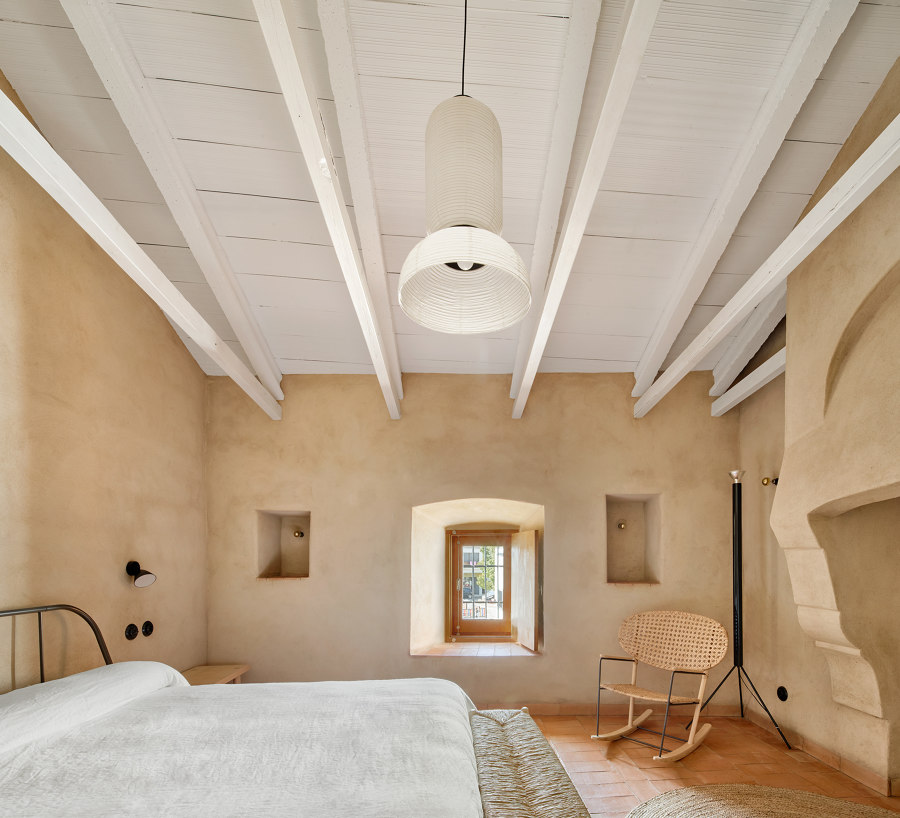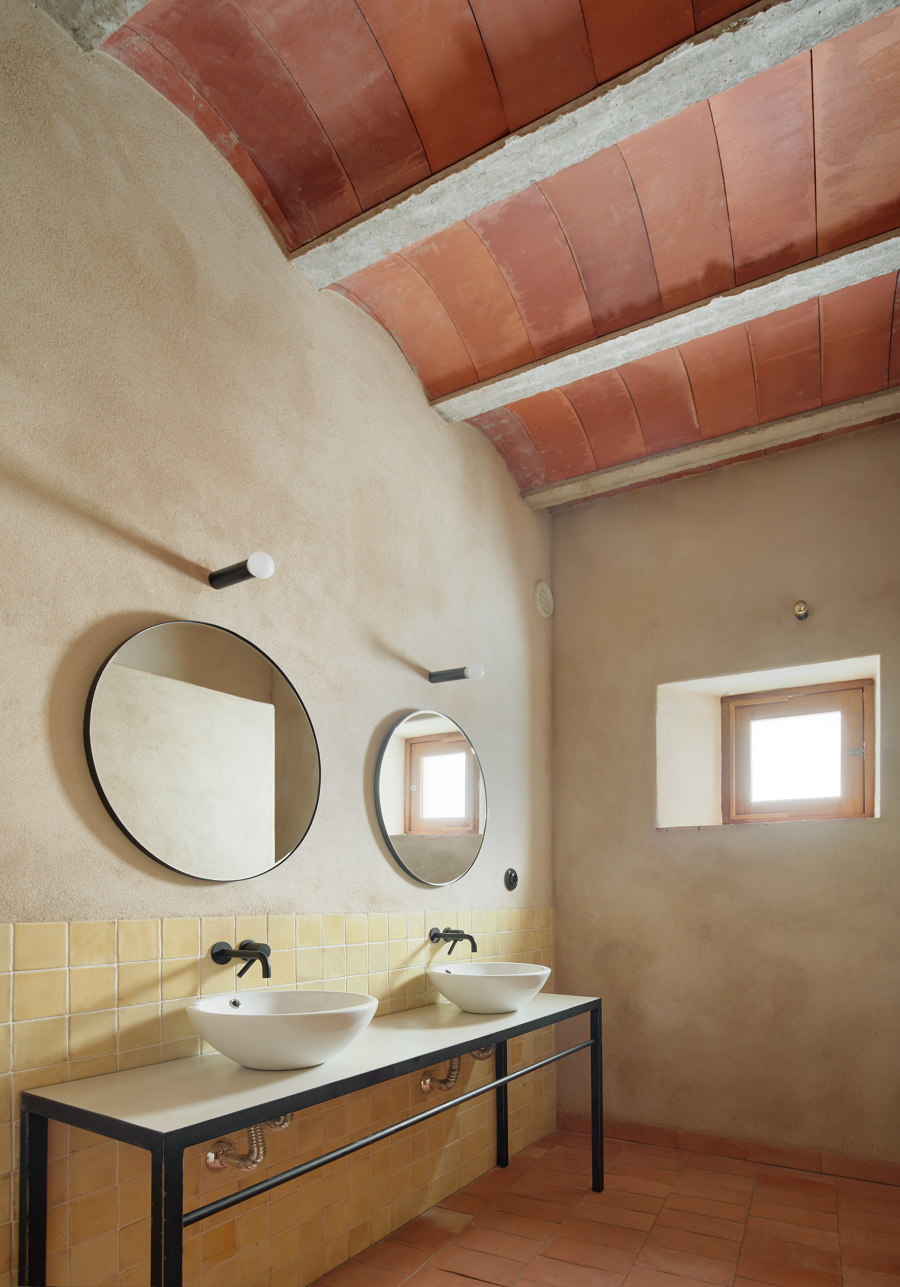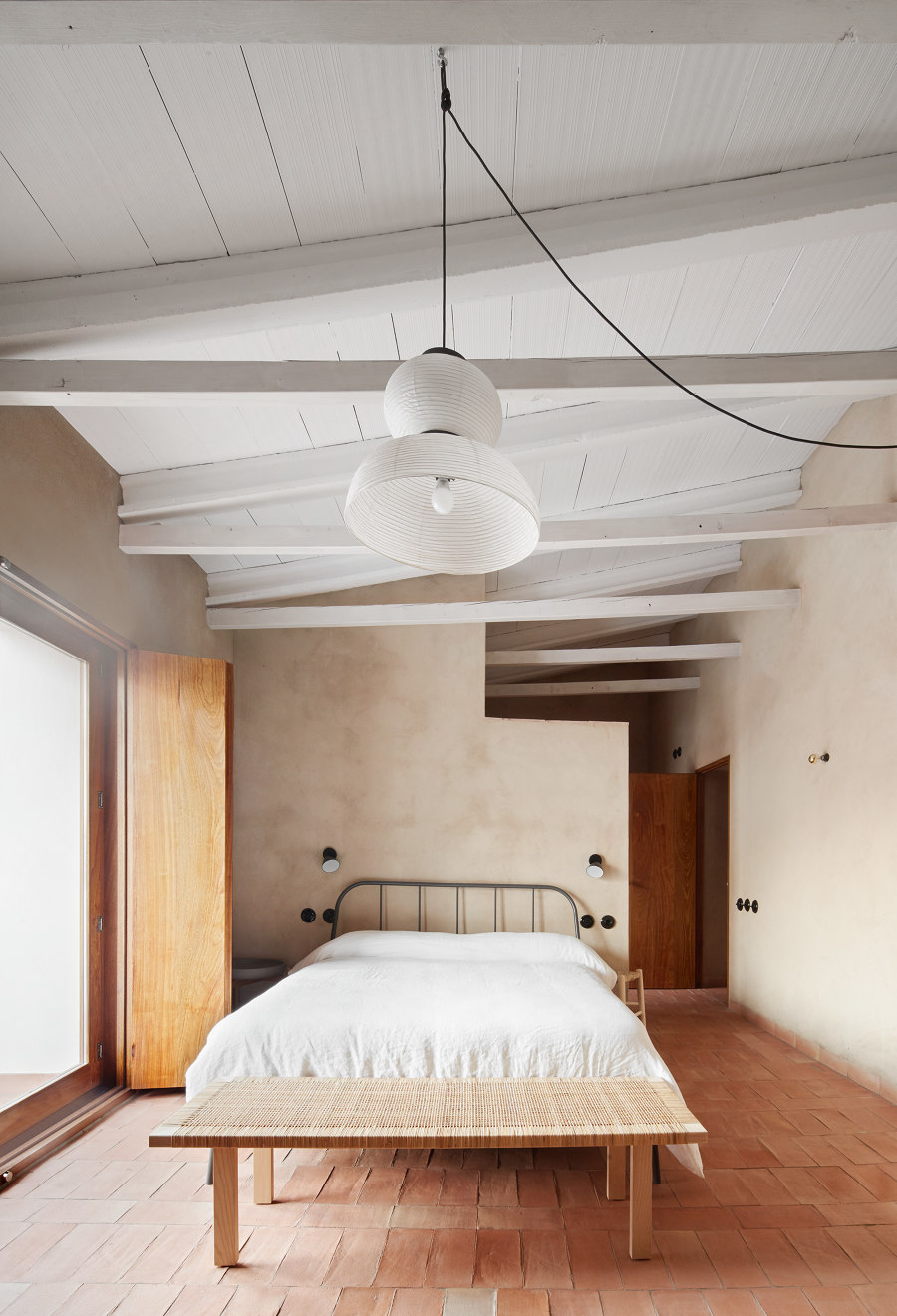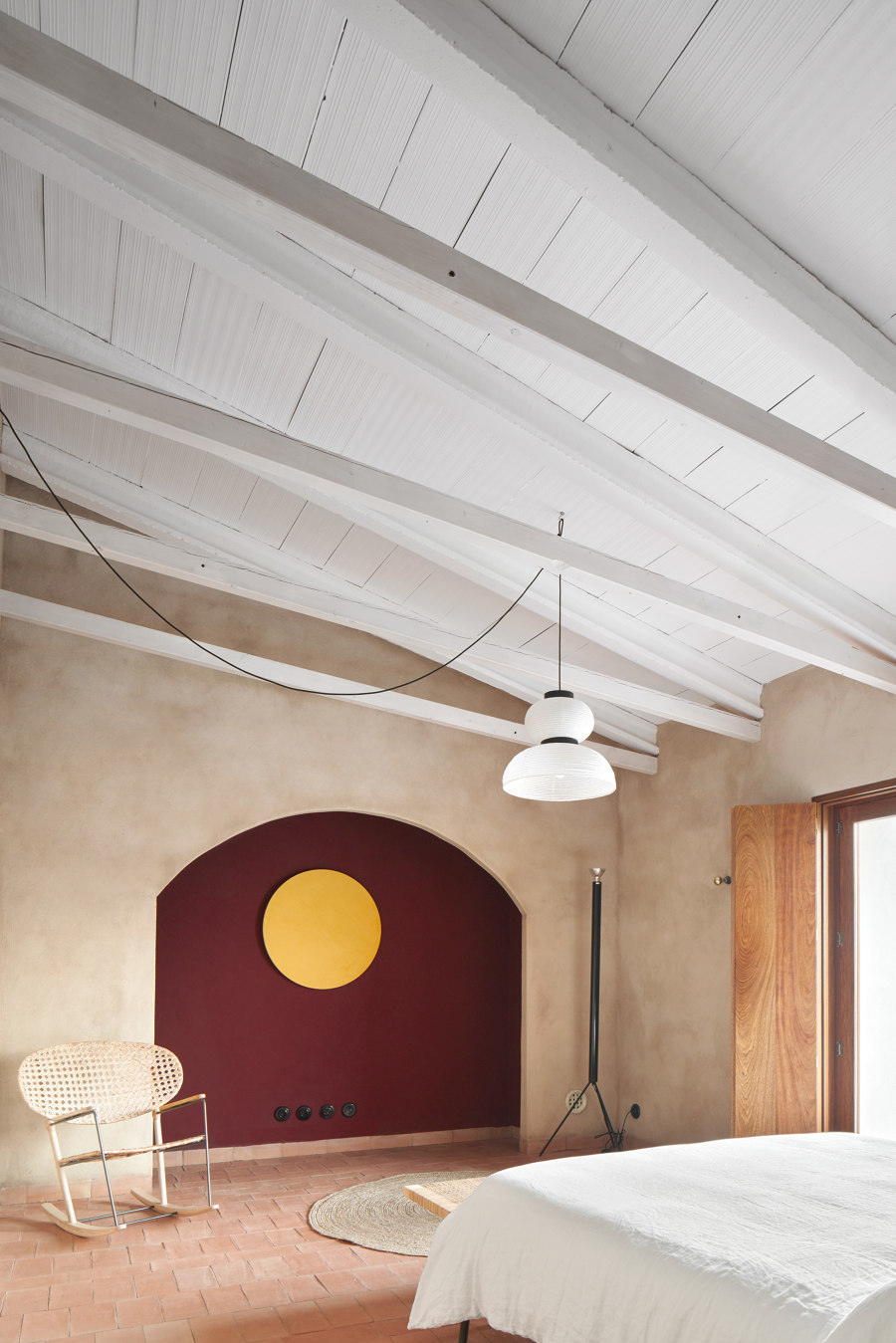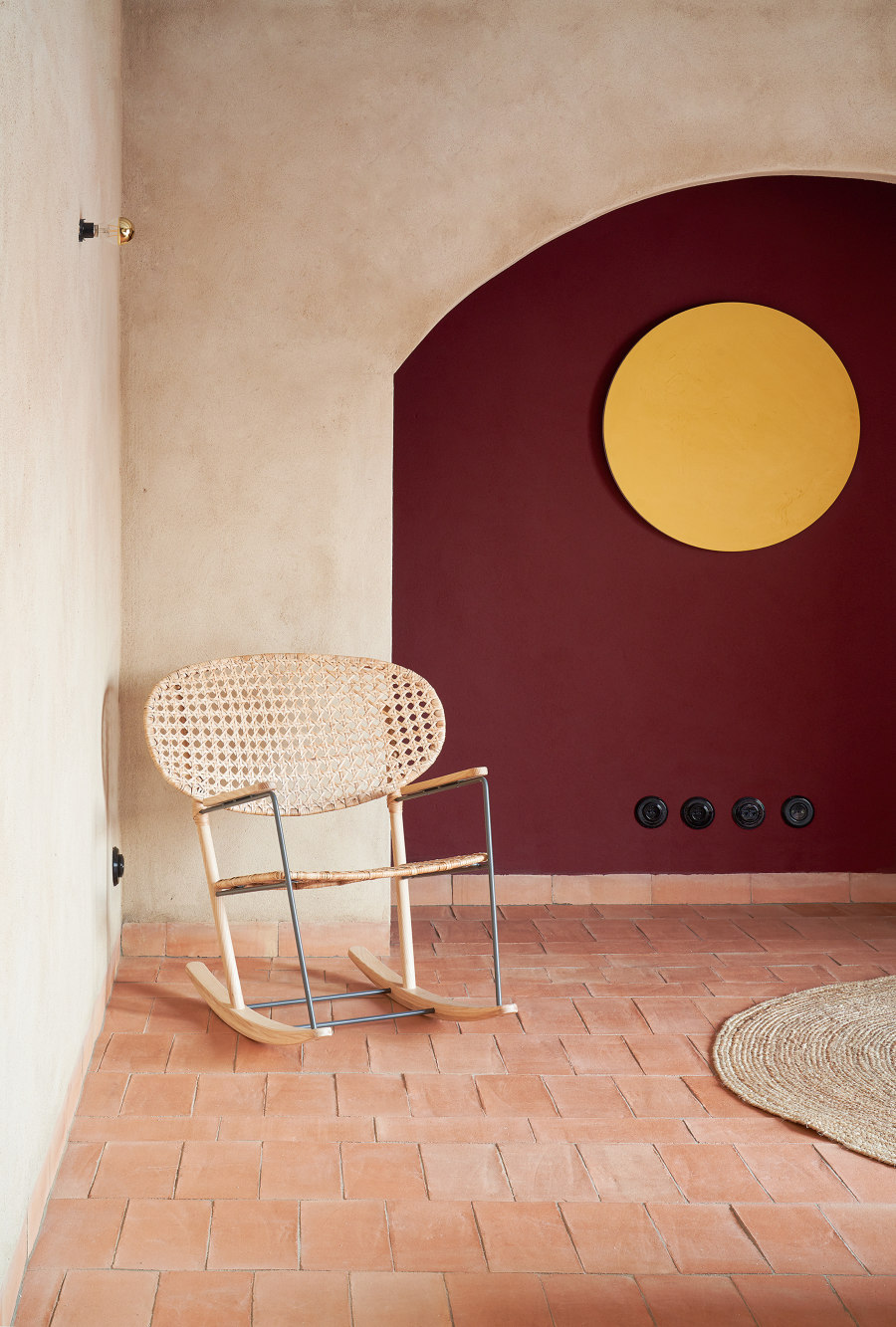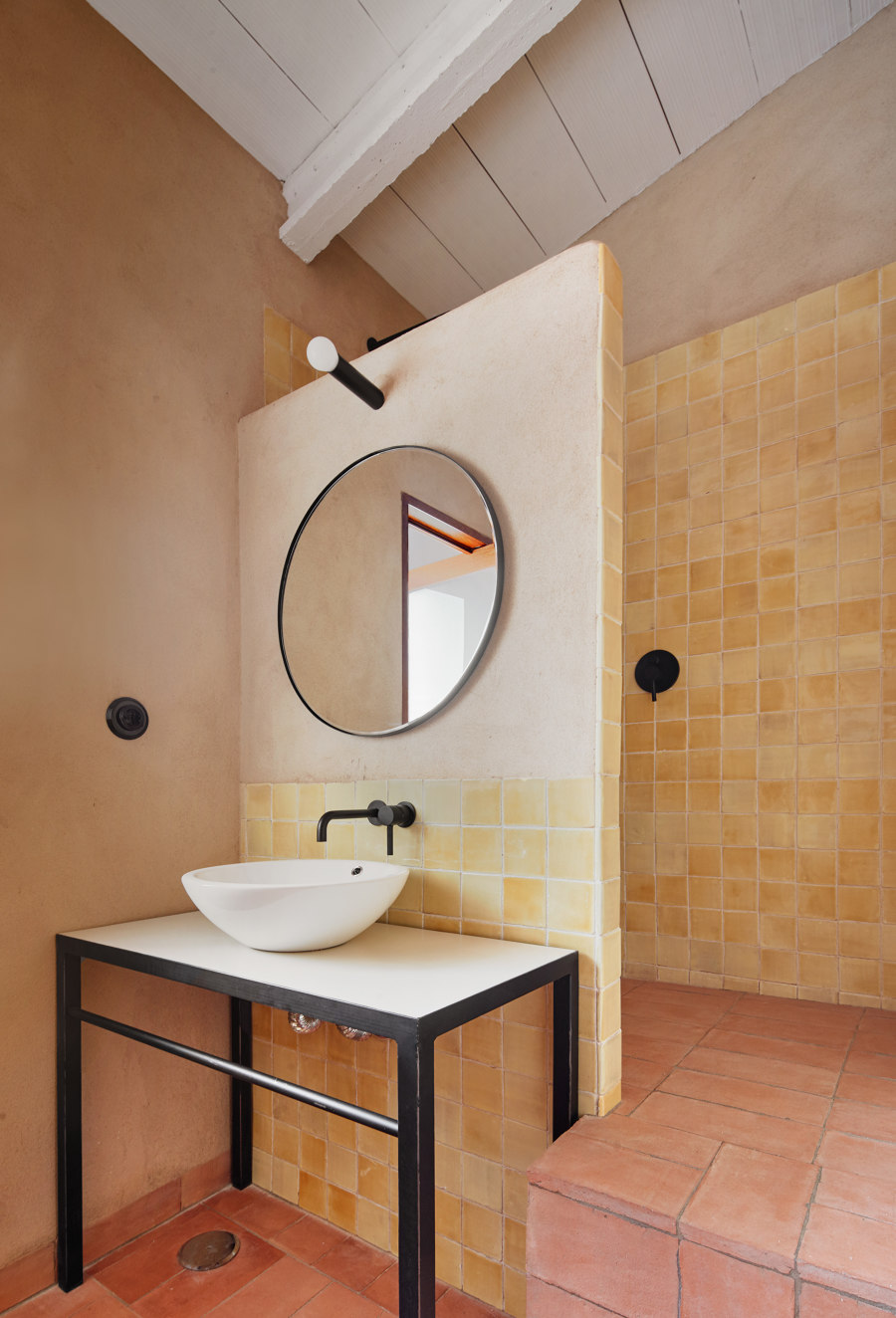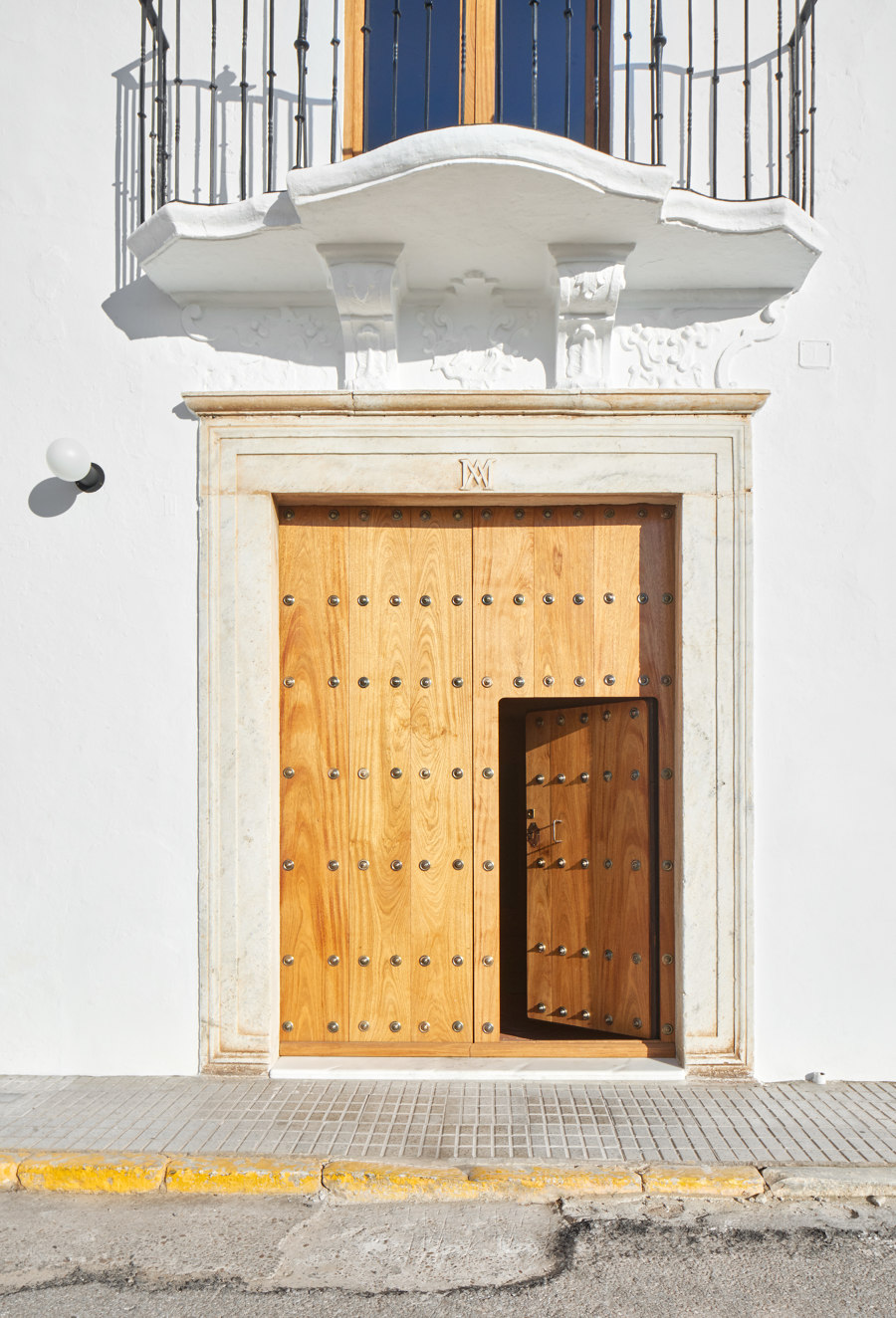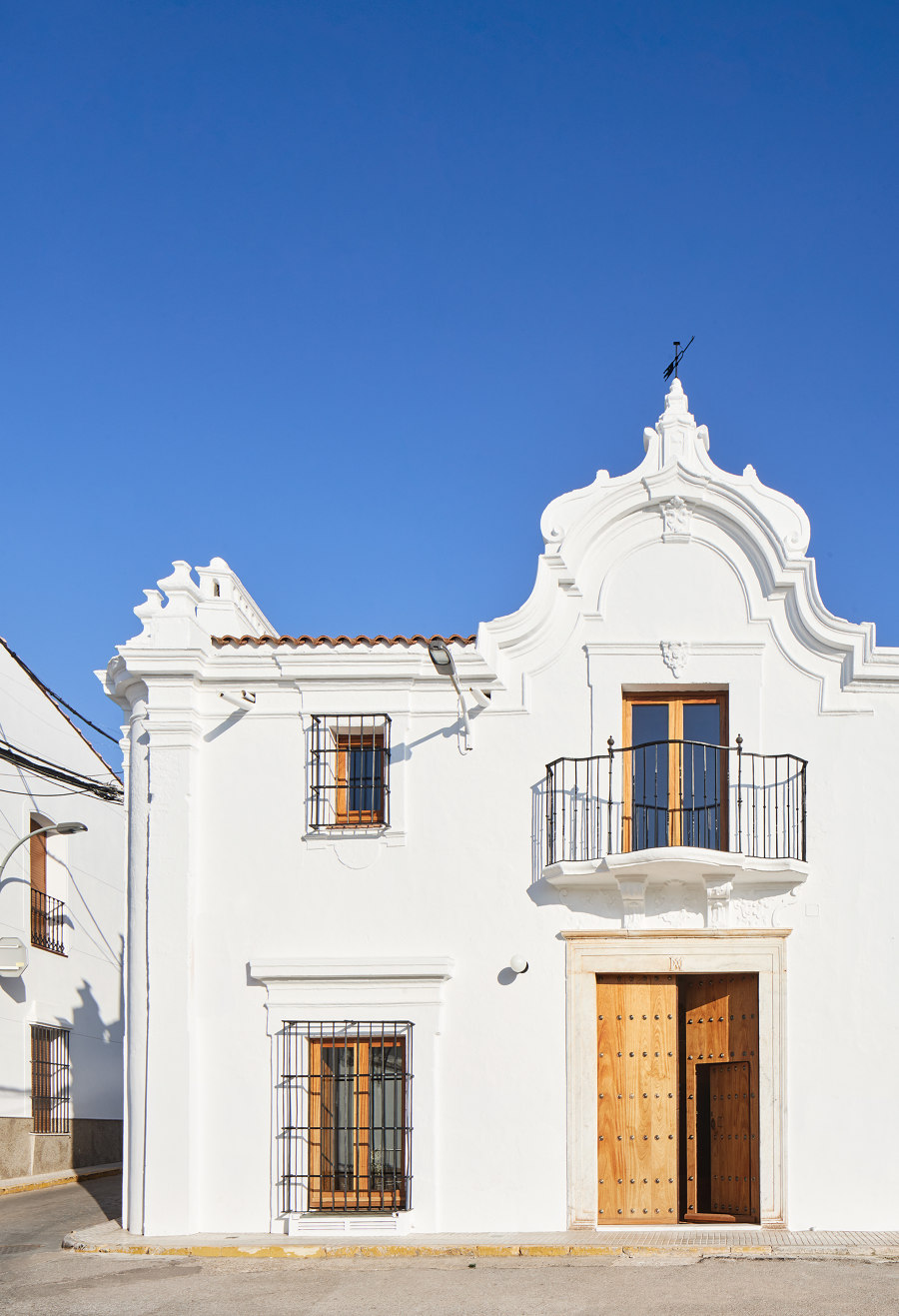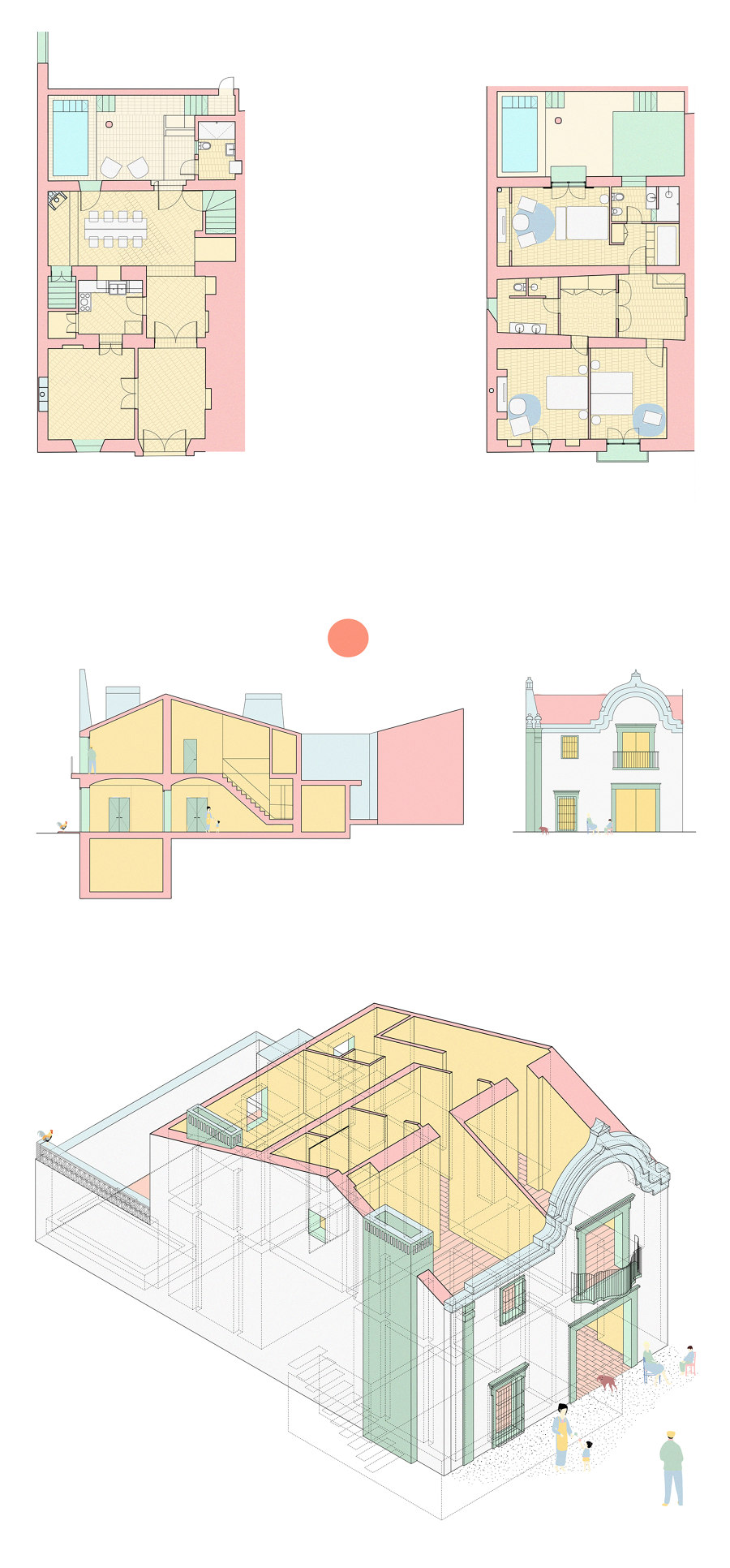Villalba de los Barros is a small town located in the region known as Tierra de Barros, south of Extremadura. There is a huge extension of vines all along a gently undulating landscape, popular for its deep red color clayey lands.
On the plain stands Villalba’s ancient old castle tower. The tower is a fortified building of the Spanish Reconquista times. It overlooks the whitewashed houses of the town.
One of these houses, probably the most unique one, is the starting point for our project. It is located in the main square and was built in the eighteenth century.
The new rural guesthouse conscientiously respects the original architecture. The project underlines every single original strength lost over time. Simultaneously, it adapts and adds the new use and its requirements seen from a contemporary perspective.
The two-storey house has a typical setting: three load-bearing wall bays and an Extremadura vault on the ground floor. It opens onto the entrance square on one side and onto a small yard on the other. At this level all the social areas can be found: hallway, living room, kitchen, dining room and yard.
The original spaces were recovered. In addition, new openings to the yard and between rooms were included to open new perspectives and to obtain more brightness. In material terms, a raw lime mortar has been used on walls while limewash has been used on vaults.
The baked clay floor had been lost but we approached local potters who made new pieces by hand. Similar in texture and vibration to the old floor, only the diagonal and irregular layout of drawings (in specular reference of ceilings) makes possible the distinction of this floor as a contemporary one.
This brick is also used at the yard to the edge of the small pool that has been built to cool hot summer days.
The carpentry work also stands out, both for the careful restoration of richly decorated original elements and for the work regarding new doors, windows, friars and their fittings.
Bedrooms have been taken to the upper floor, an old sobrao which was used as a warehouse and to dry cure meat from slaughter.
This floor has been almost entirely reorganised, but the aim was to keep the atmosphere and unique character of the house in terms of scale, finishes and furniture.
The rural guesthouse has 3/4 bedrooms and three bathrooms, hallway, living room, kitchen, dining room, yard and cellar.
It is equipped with modern facilities to ensure comfort. Special care has been taken both in the use of materials and air conditioning systems an in their sustainability, following the logic that the vernacular architecture itself represents.
Design Team:
Lucas y Hernández-Gil Arquitectos
